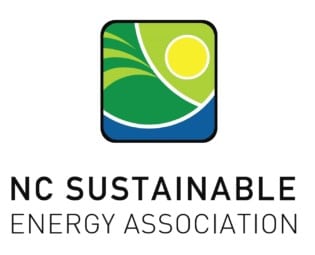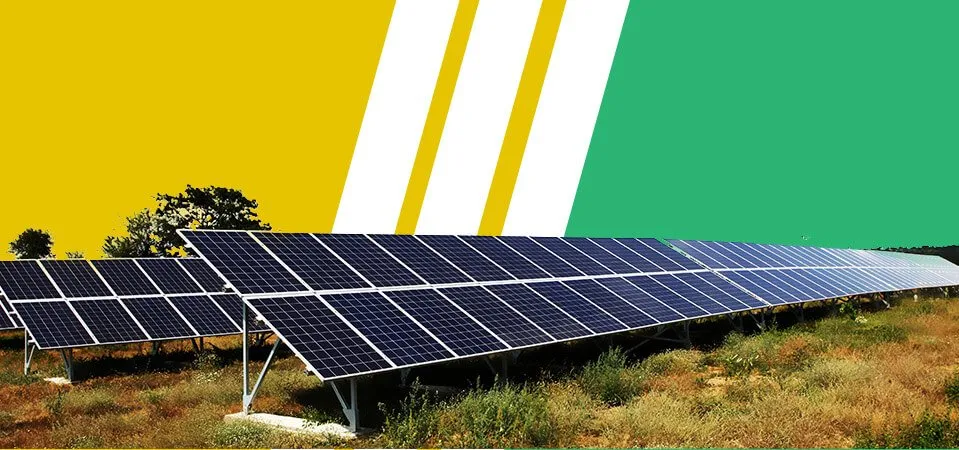
As more people start shifting toward clean energy, you’ve likely heard about the many ways solar energy can benefit the environment. One of the most common benefits of solar power is that it can reduce carbon emissions and our reliance on nonrenewable resources like fossil fuels. But in what ways does solar energy affect the economy and environment?
Below, we’ll help you understand how solar energy can have a positive impact on your local economy and environment.
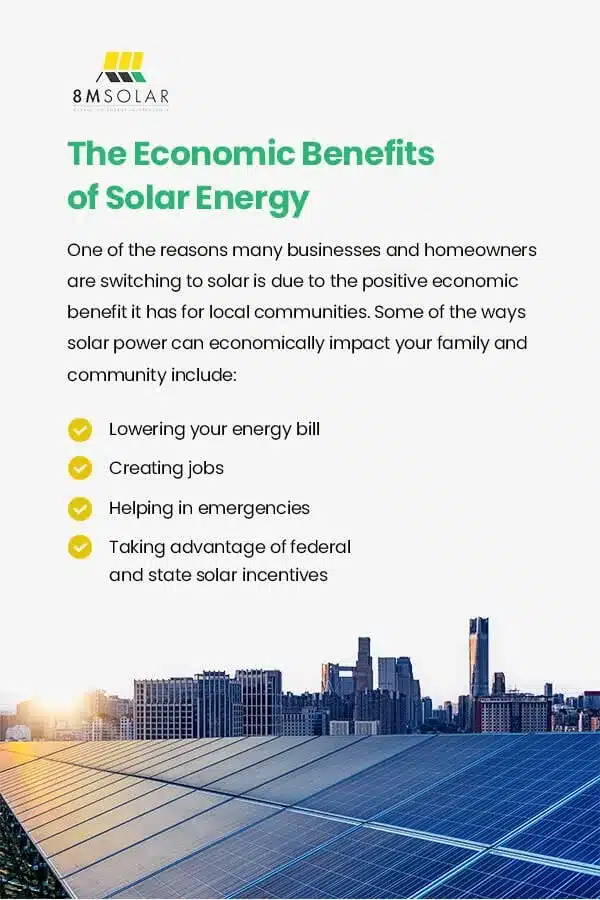
The Economic Benefits of Solar Energy
Switching to solar energy benefits the environment and has a profound economic impact on families and local communities. Here are some of the ways solar power can provide financial advantages:

1. Solar Reduces Utility Bills
One of the most immediate benefits of solar energy is its ability to lower electricity costs. Solar panels convert sunlight into clean energy, reducing your reliance on traditional power sources and cutting monthly utility bills. Over time, these savings can help you recover your initial investment.
Through programs like net metering, homeowners can sell excess energy back to the grid. This not only reduces your costs further but also provides clean energy for others in your community, fostering a shared economic benefit.
2. Solar Creates Local Jobs
The growing demand for solar power fuels job creation in manufacturing, installation, and maintenance. By investing in solar, you’re supporting an industry that creates thousands of jobs locally and nationwide. Each solar project generates employment opportunities, strengthening your community’s economy while advancing clean energy adoption.
3. Solar Supports Communities During Emergencies
Natural disasters like hurricanes, earthquakes, and floods often disrupt power grids. Solar panels offer an alternative when traditional energy systems fail. Even when fossil fuels are inaccessible, the sun continues to provide energy to power homes and businesses.
Reducing dependence on nonrenewable energy also reduces climate change, contributing to the severity of natural disasters. By choosing solar, you’re promoting resilience in your community during emergencies while addressing long-term environmental concerns.
4. Solar Incentives Boost Affordability
Federal and state governments offer incentives to make solar installations more affordable. For example:
- The Solar Investment Tax Credit (ITC) allows you to deduct some of your installation costs from federal taxes.
- Many states, like North Carolina, provide financial incentives to reduce upfront expenses further.
These programs encourage widespread solar adoption, driving demand for local businesses and contributing to economic growth.
A Win-Win Solution
Solar energy benefits extend beyond individual households—it strengthens local economies, creates jobs, and provides critical resources during emergencies. By investing in solar, you’re saving money and contributing to a cleaner, more resilient community.
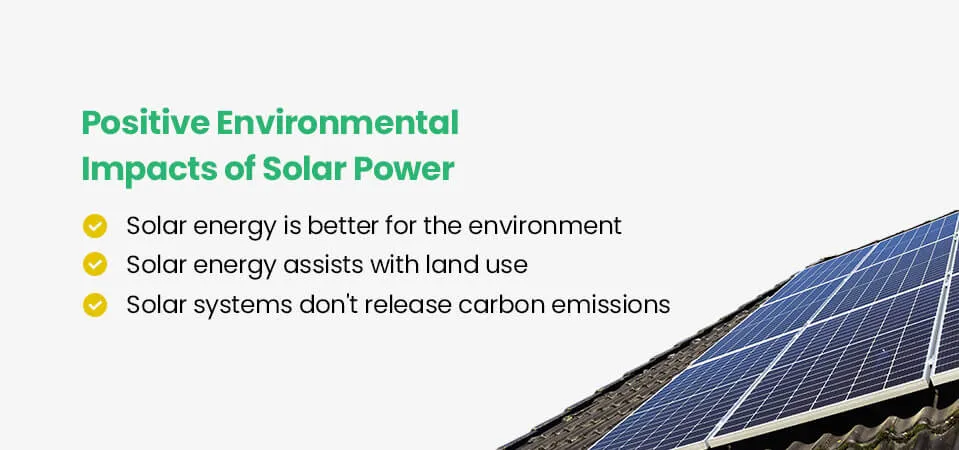
How Does Solar Energy Affect the Environment?
There are also many positive environmental impacts of solar power, which include the following:

Solar Energy Is Better for the Environment
Collecting fossil fuels for electricity is responsible for damage to certain local ecosystems. Many plants and animals suffer, as habitats are destroyed and flora is removed to create space for energy operations such as drilling infrastructure.
Alternatively, clean energy sources like solar can help ecosystems flourish once again. The installation of solar plants requires much less space and can be installed on top of buildings. People and wildlife don’t experience air or water pollution from solar panels.
The production of fossil fuels requires mining, burning and drilling, which release greenhouse gas emissions (GHG) into the atmosphere. These GHG emissions, like carbon dioxide, have detrimental impacts on the environment. By opting for solar energy and other clean energy sources, we can limit GHG emissions and help protect the planet from further damage.
Overall, solar energy can help your community restore ecosystems, reduce pollution and reduce green house gas emissions, all of which is vital to protecting humans, wildlife, and entire ecosystems. This in turn makes air more breathable and decreases the amount of water necessary to generate power.
Solar Helps With Land Use
Many traditional forms of electricity require a large amount of space for energy plants, including a lot of valuable land. Fortunately, solar systems don’t have the same land use requirements. The benefit of solar systems is they can be mounted on your roof or placed in a remote area with barren land. As new technology comes out, solar systems will be better equipped to assist with land usage. Overall, your local environment can benefit from the minimal land use solar systems require.
Solar Reduces Carbon Emissions
Unlike fossil fuels, which require mining, drilling, transporting and burning to produce elctricity, solar panels are renewable energy sources that don’t release the harmful carbon emissions that damage waterways and the atmosphere. These pollutants are also damaging to the health of wildlife and ourselves, and reducing them could save 25,000 lives. Using renewable solar power will help reduce our dependence on finite resources that damage the environment, helping keep the Earth healthy and protecting our infrastructure.
Overall, the environmental impact of solar energy is generally favorable. It’s important to note that harvesting the materials for solar panels, such as specific metals and glass, can impact the environment, as can the construction of the panels themselves. Still, experts say solar panels can make up for the energy required to produce them in one to four years. These systems can also work for 30 years, meaning solar panels can make up for their environmental production costs multiple times throughout their useful life.
There are also some concerns about land use regarding solar energy. Some worry that solar panel installation for large-scale projects can damage or degrade the land and contribute to habitat loss. However, the potential damage to land and habitats can be minimized or even eliminated by installing large solar panel projects in low-quality locations, such as abandoned mining facilities to avoid causing land degradation in existing habitats, Installing panels on top of existing buildings can also reduce land use.
Naturally, some concerns about solar panels exist. Fortunately, the potential problems can be remedied by careful planning and attention to proper disposal methods.
Recycling Solar Panels
If you’re considering solar panels, you should be aware of how you can further reduce your environmental impact.
One of the main concerns with solar panels and the environment is the hazardous materials that certain solar panels require during manufacturing. A solution is to recycle solar panels, which is more than possible but isn’t as common as it should be among solar panel owners.
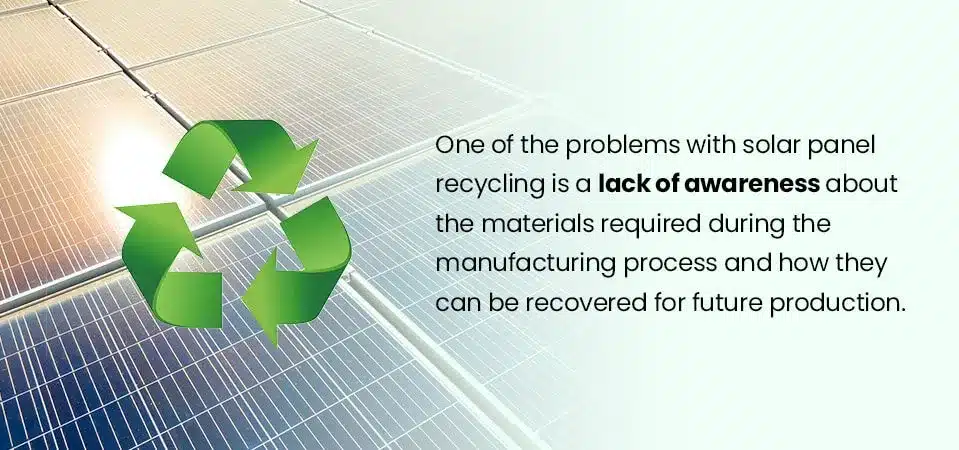
Solar panels can use precious metals like silver or indium, which could become scarce if solar panels aren’t properly recycled. One of the problems with solar panel recycling is a lack of awareness about the materials required during the manufacturing process and how they can be recovered for future production. If you’re trying to do your part for the environment and are considering solar panels, you should consider what you’re going to do when you need to replace parts or the panels reach the end of their life cycles.
Talk with your solar panel provider about the proper way to recycle solar panels and where you can find a recycling location that will take them. Some providers will even handle the recycling process for you, ensuring it’s done correctly. Improper disposal could waste precious materials and cause potentially hazardous substances to harm the environment.
As we rely on crude oil and other fuel that has high carbon emissions, the pollutants contribute to climate change, which is responsible for rising sea levels, changing weather patterns, melting glaciers and other concerning issues. Using clean energy like solar should be part of a global effort to eliminate carbon emissions, and it’s essential for homeowners and businesses to do their part by making the switch to protect the environment and our health.

Trust 8MSolar as Your Solar Power Provider
Solar power can help your local economy, environment, family and community. At 8MSolar, we take care to keep our solar systems as safe as possible, from commercial and residential solar installation to day-to-day use. We’re experts in the solar industry and can assist with installation, regular servicing and repairs for customers in North Carolina.
We’re also certified by multiple organizations, including the North American Board of Certified Energy Practitioners (NABCEP) and Licensing Board for General Contractors of North Carolina, ensuring you can trust us as your solar service provider.
Contact us to learn more about solar installations.








